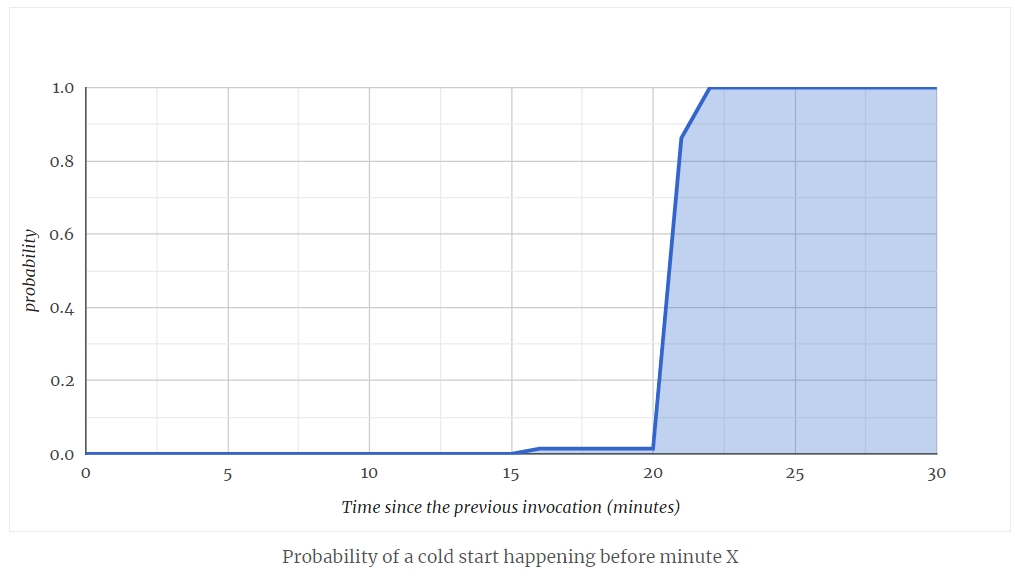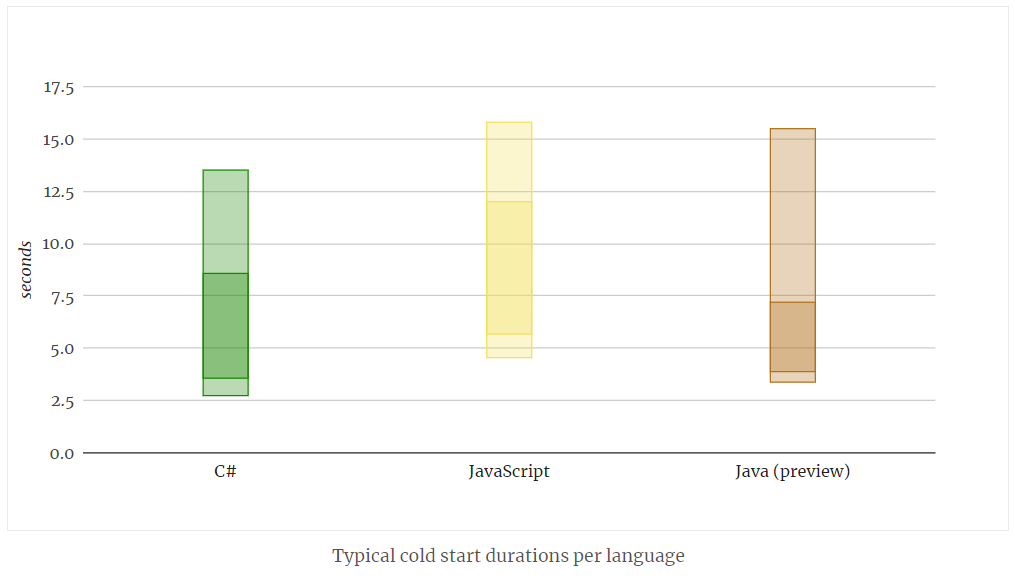Azure
AI-Assisted Infrastructure as Code with Pulumi's Model Context Protocol Server
Learn how AI assistants like Cursor with Pulumi's MCP server accelerate IaC workflows and improve developer experience.
Read more...Pulumi + Azure Deployment Environments: Better Together for Enterprise Developers
Author Azure Deployment Environments definitions with Pulumi using your favorite programming language.
Read more...Get Up and Running with Azure Synapse and Pulumi
Use infrastructure as code to automate deployment of an Azure Synapse workspace
Read more...How To Deploy Temporal to Azure Kubernetes Service (AKS)
Get up and running with Temporal workflows in Azure and Kubernetes in several CLI commands
Read more...Deploying new Azure Container Apps with familiar languages
Learn how to deploy Docker containers to Azure Container Apps using Pulumi. A step-by-step guide for building scalable serverless apps in any language.
Read more...How To Deploy Temporal to Azure Container Instances
Get up and running with Temporal workflows in Azure in several CLI commands
Read more...Eliminate Cold Starts by Predicting Invocations of Serverless Functions
Azure Functions introduce a data-driven strategy to pre-warm serverless applications right before the next request comes in
Read more...When Does Cold Start Happen on Azure Functions?
The first cold start happens when the very first request comes in after deployment.
After that request is processed, the instance stays alive for the time being to be reused for subsequent requests. But for how long?
Read more...Comparison of Cold Starts in Serverless Functions across AWS, Azure, and GCP
AWS Lambda, Azure Functions, and Google Cloud Functions compared in terms of cold starts across all supported languages
Read more...Cold Starts in Azure Functions
Influence of dependecies, language, runtime selection on Consumption Plan
Read more...Azure Functions: Cold Start Duration per Language
The following chart shows the typical range of cold starts in Azure Functions, broken down per language. The darker ranges are the most common 67% of durations, and lighter ranges include 95%.
Read more...Farmer or Pulumi? Why not both!
Azure Infrastucture as Code using F#: combining Pulumi and Farmer
Read more...Get Up and Running with Azure Synapse and Pulumi
Use infrastructure as code to automate deployment of an Azure Synapse workspace
Read more...How To Deploy Temporal to Azure Kubernetes Service (AKS)
Get up and running with Temporal workflows in Azure and Kubernetes in several CLI commands
Read more...How To Deploy Temporal to Azure Container Instances
Get up and running with Temporal workflows in Azure in several CLI commands
Read more...Announcing Next Generation Pulumi Azure Provider
Next Generation Pulumi Azure Provider with 100% API Coverage and Same-Day Feature Support is now available in beta
Read more...Eliminate Cold Starts by Predicting Invocations of Serverless Functions
Azure Functions introduce a data-driven strategy to pre-warm serverless applications right before the next request comes in
Read more...Serverless in the Wild: Azure Functions Production Usage Statistics
Insightful statistics about the actual production usage of Azure Functions, based on the data from Microsoft's paper
Read more...Hosting Azure Functions in Google Cloud Run
Running Azure Functions Docker container inside Google Cloud Run managed service
Read more...Santa Brings Cloud to Every Developer
How Santa Cloud uses F# and Pulumi to bring cloud resources to the homes of software engineers.
Read more...Choosing the Best Deployment Tool for Your Serverless Applications
Factors to consider while deploying cloud infrastructure for serverless apps.
Read more...AWS Lambda vs. Azure Functions: 10 Major Differences
A comparison AWS Lambda with Azure Functions, focusing on their unique features and limitations.
Read more...How To Deploy a Function App with KEDA (Kubernetes-based Event-Driven Autoscaling)
Hosting Azure Functions in Kubernetes: how it works and the simplest way to get started.
Read more...How To Build Globally Distributed Applications with Azure Cosmos DB and Pulumi
A reusable component to build highly-available, low-latency applications on Azure
Read more...Ten Pearls With Azure Functions in Pulumi
Ten bite-sized code snippets that use Pulumi to build serverless applications with Azure Functions and infrastructure as code.
Read more...How to Measure the Cost of Azure Functions
Azure pricing can be complicated—to get the most value out of your cloud platform, you need to know how to track spend and measure the costs incurred by Azure Functions.
Read more...7 Ways to Deal with Application Secrets in Azure
From config files to Key Vault and role-based access, learn how infrastructure as code helps manage application secrets in Azure.
Read more...Load-Testing Azure Functions with Loader.io
Verifying your Function App as a valid target for the cloud load testing.
Read more...How Azure CLI Manages Your Access Tokens
Azure CLI is a powerful tool to manage your cloud resources. Where does it store the sensitive information and why might you want to care?
Read more...Globally-distributed Serverless Application in 100 Lines of Code. Infrastructure Included!
Building a serverless application on Azure with both the data store and the HTTP endpoint located close to end users for fast response time.
Read more...Hosting a Static Website on Azure with Pulumi
Static websites are back in the mainstream these days. Setting up the infrastructure to serve a static website in Azure is a task where Pulumi shines.
Read more...Serverless as Simple Callbacks with Pulumi and Azure Functions
The simplest way to take a Node.js function and deploy it to Azure cloud as an HTTP endpoint using Pulumi.
Read more...Level up your Azure Platform as a Service applications with Pulumi
Leverage Pulumi for continuous delivery of code and infrastructure to Azure PaaS. An ASP.NET Core application running on App Service and DevOps pipelines.
Read more...Reducing Cold Start Duration in Azure Functions
The influence of the deployment method, application insights, and more on Azure Functions cold starts.
Read more...Concurrency and Isolation in Serverless Functions
Exploring approaches to sharing or isolating resources between multiple executions of the same cloud function and the associated trade-offs.
Read more...Serverless at Scale: Serving StackOverflow-like Traffic
Scalability test for HTTP-triggered serverless functions across AWS, Azure and GCP
Read more...A Fairy Tale of F# and Durable Functions
How F# and Azure Durable Functions make children happy (most developers are still kids at heart)
Read more...Making Sense of Azure Durable Functions
Why and How of Stateful Workflows on top of serverless functions
Read more...From 0 to 1000 Instances: How Serverless Providers Scale Queue Processing
Comparison of queue processing scalability for FaaS across AWS, Azure and GCP
Read more...Azure Functions V2 Is Released, How Performant Is It?
Comparison of performance benchmarks for Azure Functions V1 and V2
Read more...Serverless: Cold Start War
Comparison of cold start statistics for FaaS across AWS, Azure and GCP
Read more...Programmable Cloud: Provisioning Azure App Service with Pulumi
Exploring Infrastructure-as-Code approach suggested by Pulumi with examples around provisioning Azure App Service
Read more...Cold Starts Beyond First Request in Azure Functions
Can we avoid cold starts by keeping Functions warm, and will cold starts occur on scale out? Let's try!
Read more...Azure Functions: Cold Starts in Numbers
Auto-provisioning and auto-scalability are the killer features of Function-as-a-Service cloud offerings, and Azure Functions in particular.
One drawback of such dynamic provisioning is a phenomenon called “Cold Start”. Basically, applications that haven’t been used for a while take longer to startup and to handle the first request.
Read more...Azure Durable Functions in F#
Azure Functions are designed for stateless, fast-to-execute, simple actions. Typically, they are triggered by an HTTP call or a queue message, then they read something from the storage or database and return the result to the caller or send it to another queue. All within several seconds at most.
Read more...Load Testing Azure SQL Database by Copying Traffic from Production SQL Server
Azure SQL Database is a managed service that provides low-maintenance SQL Server instances in the cloud. You don’t have to run and update VMs, or even take backups and setup failover clusters. Microsoft will do administration for you, you just pay an hourly fee.
Read more...Azure Functions Get More Scalable and Elastic
Back in August this year, I’ve posted Azure Functions: Are They Really Infinitely Scalable and Elastic? with two experiments about Azure Function App auto scaling. I ran a simple CPU-bound function based on Bcrypt hashing, and measured how well Azure was running my Function under load.
Read more...Precompiled Azure Functions in F#
This post is giving a start to F# Advent Calendar in English 2017. Please follow the calendar for all the great posts to come.
Azure Functions is a “serverless” cloud offering from Microsoft. It allows you to run your custom code as response to events in the cloud. Functions are very easy to start with; and you only pay per execution - with free allowance sufficient for any proof-of-concept, hobby project or even low-usage production loads. And when you need more, Azure will scale your project up automatically.
Read more...Azure Function Triggered by Azure Event Grid
Update: I missed the elephant in the room. There actually exists a specialized
trigger for Event Grid binding. In the portal, just select Experimental
in Scenario drop down while creating the function. In precompiled
functions, reference Microsoft.Azure.WebJobs.Extensions.EventGrid NuGet
package.
Wanted: Effectively-Once Processing in Azure
Are there any known patterns / tools / frameworks to provide scalable, stateful, effectively-once, end-to-end processing of messages, to be hosted in Azure?
Read more...Azure Functions: Are They Really Infinitely Scalable and Elastic?
Updated results are available at Azure Functions Get More Scalable and Elastic.
Automatic elastic scaling is a built-in feature of Serverless computing paradigm. One doesn’t have to provision servers anymore, they just need to write code that will be provisioned on as many servers as needed based on the actual load. That’s the theory.
Read more...Authoring a Custom Binding for Azure Functions
The process of creating a custom binding for Azure Functions.
Read more...Custom Autoscaling with Durable Functions
Leverage Azure Durable Functions to scale-out and scale-in App Service based on a custom metric
Read more...Custom Autoscaling of Azure App Service with a Function App
How to scale-out and scale-in App Service based on a custom metric
Read more...Sending Large Batches to Azure Service Bus
Azure Service Bus client supports sending messages in batches. However, the size of a single batch must stay below 256k bytes, otherwise the whole batch will get rejected.
Read more...Finding Lost Events in Azure Application Insights
One of the ways we use Azure Application Insights is tracking custom application-specific events. For instance, every time a data point from an IoT device comes in, we log an AppInsights event. Then we are able to aggregate the data and plot charts to derive trends and detect possible anomalies.
Read more...Reliable Consumer of Azure Event Hubs
Azure Event Hubs is a log-based messaging system-as-a-service in Azure cloud. It’s designed to be able to handle huge amount of data, and naturally supports multiple consumers.
Read more...Azure Functions as a Facade for Azure Monitoring
Azure Functions are the Function-as-a-Service offering from Microsoft Azure cloud. Basically, an Azure Function is a piece of code which gets executed by Azure every time an event of some kind happens. The environment manages deployment, event triggers and scaling for you. This approach is often reffered as Serverless.
Read more...Azure Service Bus Entity Metrics .NET APIs
Getting advanced metrics out of Azure Service Bus in C# code
Read more...Azure SQL Databases: Backups, Disaster Recovery, Import and Export
Azure SQL Database is a managed cloud database-as-a-service. It provides application developers with SQL Server databases which are hosted in the cloud and fully managed by Microsoft.
Read more...Getting started with Azure Application Insights in Aurelia
Azure Application Insights is an analytics service to monitor live web applications, diagnose performance issues, and understand what users actually do with the app. Aurelia is a modern and slick single-page application framework. Unfortunately, there’s not much guidance on the web about how to use AppInsights and Aurelia together in a proper manner. The task gets even more challenging in case you are using TypeScript and want to stay in type-safe land. This post will set you up and running in no time.
Read more...

























































